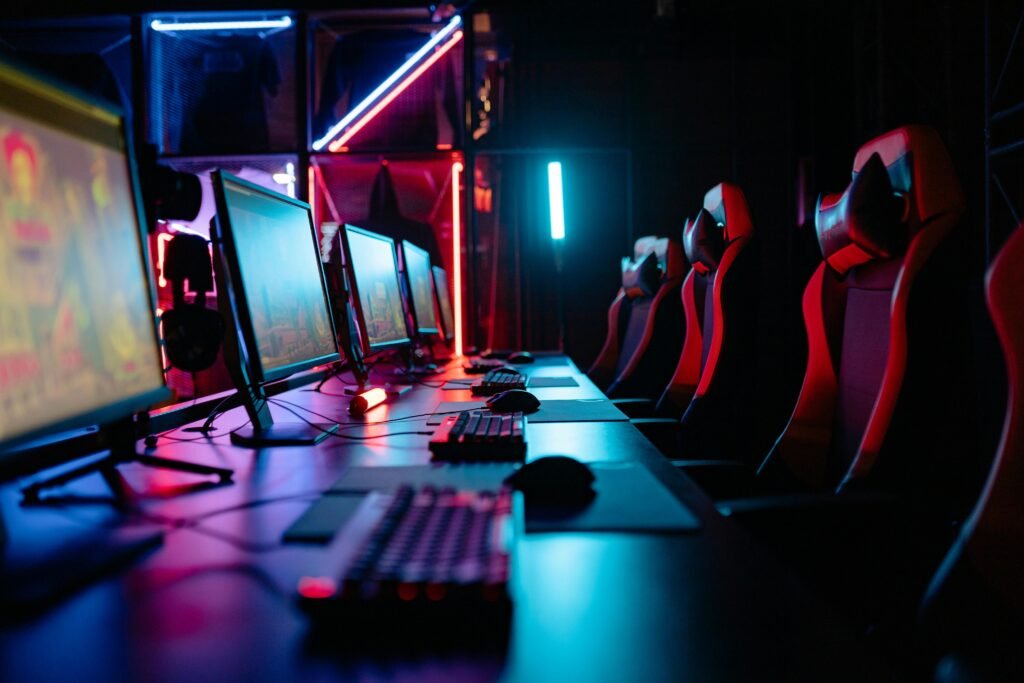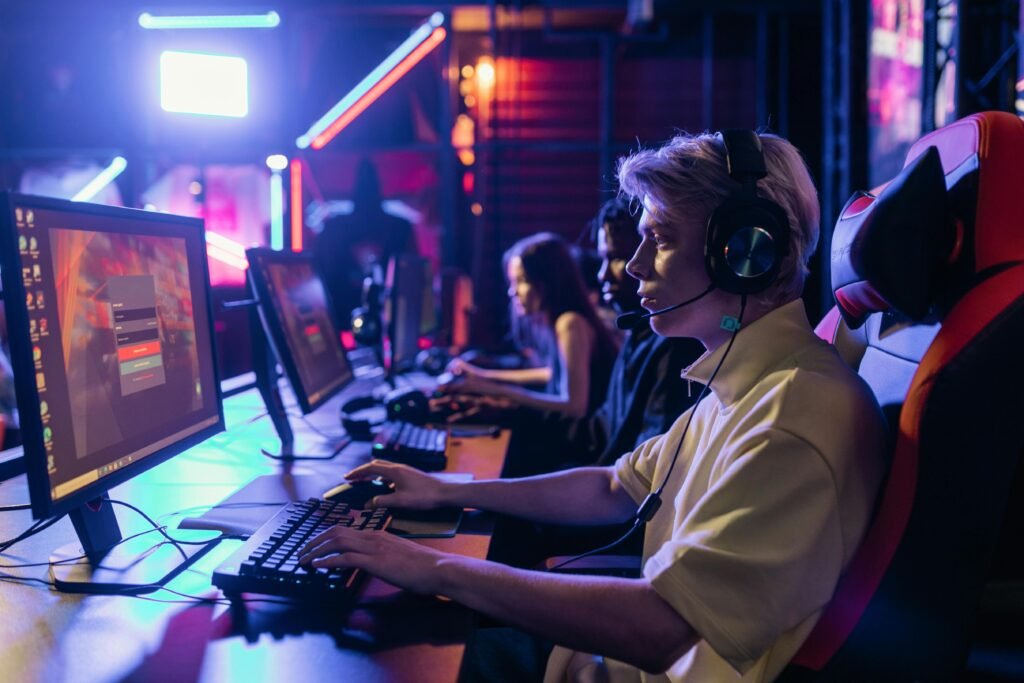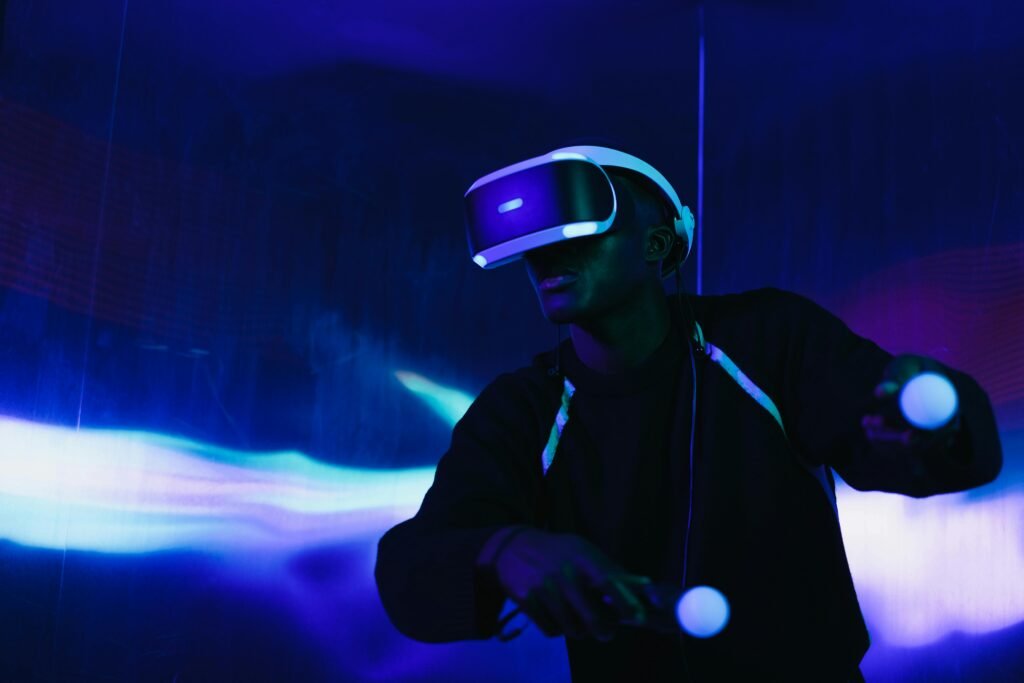
As technology advances at an unprecedented rate, the gaming industry is poised to undergo significant transformations by 2030. From AI-driven game development to fully immersive virtual reality experiences, gaming is set to reach new heights. Below, we explore key trends and innovations shaping the future of gaming over the next decade.
Artificial Intelligence in Game Development

AI is already playing a major role in gaming, but by 2030, it will be at the core of game development. Procedural content generation powered by AI will enable developers to create vast, dynamic worlds with unique, real-time evolving elements. AI-driven NPCs (non-player characters) will display human-like intelligence, adapting to players’ actions in ways that feel truly lifelike.
- AI-generated narratives that respond dynamically to player choices.
- NPCs capable of learning and evolving over time.
- AI-assisted game development reducing production costs and increasing efficiency.
Fully Immersive Virtual Reality & Augmented Reality

Virtual Reality (VR) and Augmented Reality (AR) will be fully integrated into mainstream gaming experiences by 2030. The introduction of lightweight, high-resolution VR headsets and AR-compatible contact lenses could blur the line between the real and virtual worlds.
- VR gaming with hyper-realistic environments and full-body motion tracking.
- AR integration into everyday life, merging gaming with reality.
- Haptic feedback suits allowing players to feel in-game interactions.
Cloud Gaming & The Death of Consoles?

The gaming industry is slowly shifting toward cloud-based services, reducing the need for powerful local hardware. With faster internet speeds and 6G networks expected by 2030, players will be able to stream high-quality games from any device without downloading large files.
- Subscription-based cloud gaming services dominating the market.
- No need for expensive gaming consoles, just a controller and a display.
- Cross-platform gaming experiences with seamless transitions between devices.
Blockchain & Play-to-Earn Gaming

Blockchain technology is already making waves in gaming, but by 2030, it will be an integral part of the industry. Play-to-earn (P2E) gaming models will allow players to generate real-world income through in-game activities, making gaming more than just entertainment.
- Secure, decentralized economies in gaming with NFTs and crypto-based transactions.
- Players truly owning in-game assets that can be traded across different platforms.
- Increased monetization opportunities for independent developers.
Hyper-Realistic Graphics & AI-Generated Worlds

Graphics technology will continue to push boundaries, making gaming worlds nearly indistinguishable from reality. Advances in real-time ray tracing, photogrammetry, and AI-enhanced visuals will lead to unparalleled realism.
- Photorealistic environments built using AI-generated textures.
- Real-time weather and lighting that mimic real-world conditions.
- Deep learning techniques to optimize performance and reduce rendering times.
Evolution of Esports & Competitive Gaming

Esports is already a billion-dollar industry, and by 2030, it will rival traditional sports leagues. The introduction of AI coaching, enhanced training programs, and even VR-based competitive gaming arenas will elevate esports to new levels.
- Fully immersive esports tournaments with global VR participation.
- AI-powered analytics helping players optimize their performance.
- More mainstream recognition of esports, potentially becoming an Olympic sport.
Social & Metaverse Gaming Experiences

Gaming is evolving into more than just an activity—it’s becoming a social experience. By 2030, we can expect fully developed metaverse environments where players can work, socialize, and play within the same digital space.
Key Predictions:
- Seamless integration of social media and gaming experiences.
- Virtual economies where players can buy, sell, and trade digital assets.
- AI-driven virtual assistants guiding players within metaverse spaces.
Ethical Concerns & Regulation

With technological advancements come ethical challenges. Privacy concerns, addiction risks, and AI-driven manipulation in gaming are issues that regulators and developers must address over the next decade.
Key Predictions:
- Stricter regulations on data privacy and AI usage in games.
- Increased awareness of gaming addiction and mental health effects.
- Ethical AI frameworks ensuring fair gameplay experiences.
The gaming industry in 2030 will be vastly different from what we know today. AI, VR, blockchain, and cloud technology will redefine how we interact with games. As we move toward this exciting future, one thing is certain—gaming will continue to be a dynamic and ever-evolving industry, offering experiences that were once thought to be science fiction.
Are you ready for the future of gaming? Stay tuned, because the best is yet to come!



